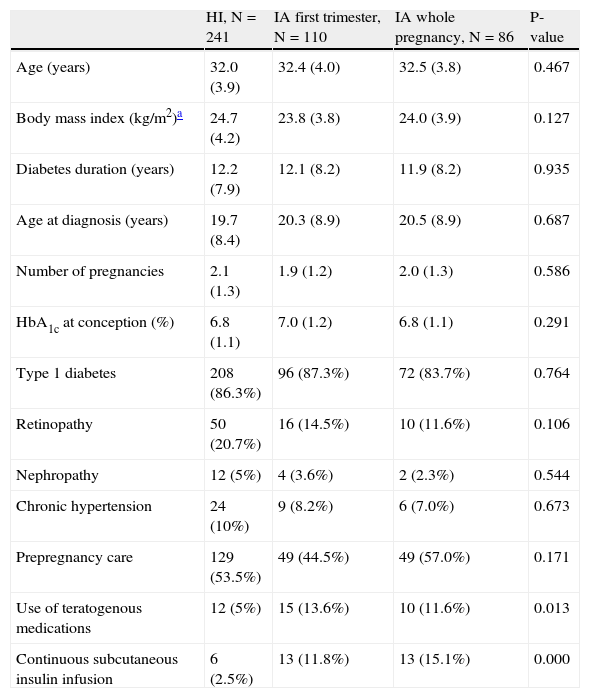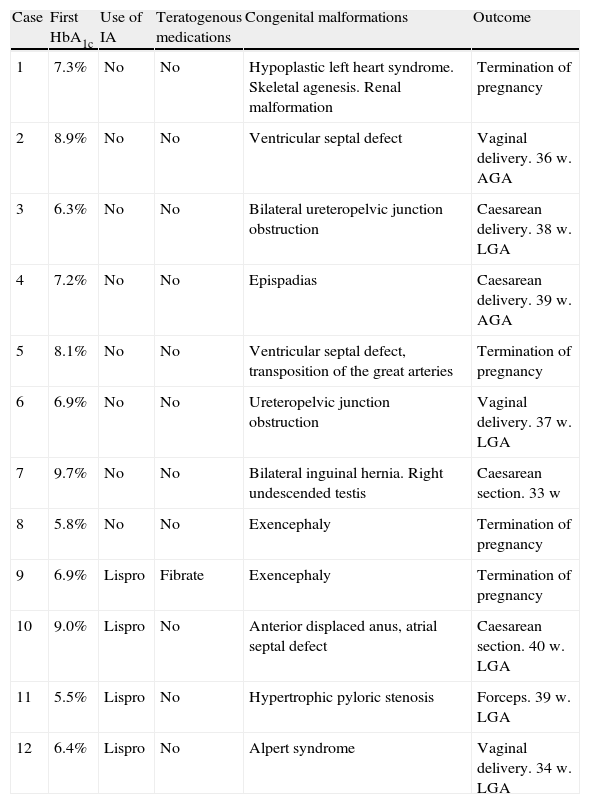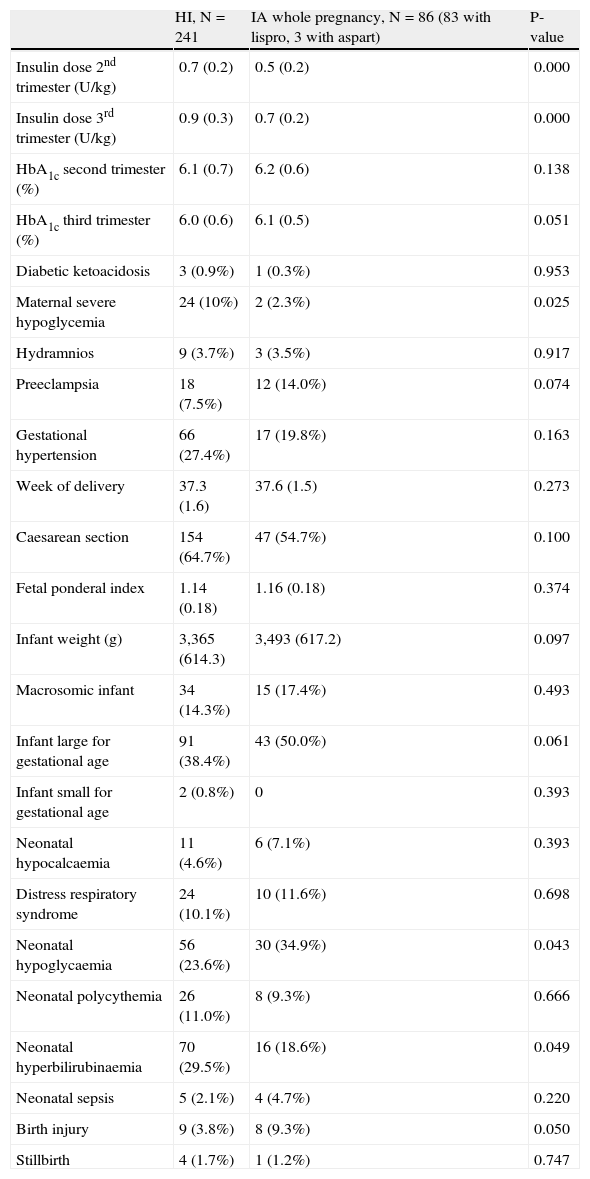To assess the safety and efficacy of insulin analogues versus human insulin in pregnant women with pregestational diabetes.
Patients and methodsWe collected data on pregnant women with type 1 or type 2 diabetes who were attended at the Diabetes and Pregnancy Unit between January 1998 and April 2008 (N=351). Two hundred and forty one patients were treated with regular insulin and NPH and 110 were treated with different combinations of insulins including an insulin analogue (most of them with NPH and lispro).
ResultsThere was no significant difference in terms of congenital malformation rate between groups (3.3% and 3.6%). The group on insulin analogue had slightly higher mean HbA1c during the first trimester than the group on human insulin (6.6 [1.0]% vs 6.9 [1.1]%; P=0,022) and needed smaller insulin doses during whole pregnancy. Severe hypoglycaemia was significantly less frequent among women treated with a rapid insulin analogue (2.3 vs 10.0%; P=0,025). Neonatal hypoglycaemia was significantly more frequent in the group treated with a rapid insulin analogue (34.9 vs 23.6%; P=0.043) due to the concomitant use of an insulin pump. Other obstetric and neonatal variables were not different between the two groups.
ConclusionOur study shows that insulin analogues are safe during pregnancy in women with pregestational diabetes mellitus. Overall, glycaemic control, maternal and foetal outcome were similar to those with human insulin. The main advantage with respect to human insulin was to importantly reduce maternal severe hypoglycaemia.
Evaluar la seguridad y eficacia de los análogos de insulina en comparación con insulina humana en mujeres embarazadas con diabetes pregestacional.
Pacientes y métodosSe recogieron datos de las embarazadas con diabetes tipo 1 o 2 que fueron atendidas en la Unidad de Diabetes y Embarazo entre enero de 1998 y abril de 2008 (n=351). Doscientas cuarenta y una pacientes fueron tratadas con insulina regular y NPH, y 110 fueron tratadas con diferentes combinaciones de insulinas incluyendo un análogo de insulina (la mayoría con NPH y lispro).
ResultadosNo hubo diferencias en cuanto a malformaciones congénitas entre ambos grupos (3,3 y 3,6%). El grupo con análogo de insulina tuvo una HbA1c ligeramente más alta que el grupo con insulina humana durante el primer trimestre (6,9 [1,1]% vs 6,6 [1,0]%; p=0,022) y necesitó menor dosis de insulina durante todo el embarazo. La hipoglucemia grave fue significativamente menos frecuente entre las mujeres tratadas con un análogo de insulina rápida (2,3 vs 10,0%; p=0,025). La hipoglucemia neonatal fue significativamente más frecuente en dicho grupo (34,9 vs 23,6%; p=0,043) en relación con el uso concomitante de bomba de insulina. Otras variables obstétricas y neonatales no fueron diferentes entre ambos grupos.
ConclusiónEste estudio muestra que el uso de los análogos de insulina es seguro durante el embarazo en mujeres con diabetes mellitus pregestacional. En general, el control glucémico y los resultados maternos y fetales fueron similares a los obtenidos con insulina humana. La principal ventaja con respecto a la insulina humana fue la importante reducción en la hipoglucemia materna grave.
Artículo
Comprando el artículo el PDF del mismo podrá ser descargado
Precio 19,34 €
Comprar ahora











